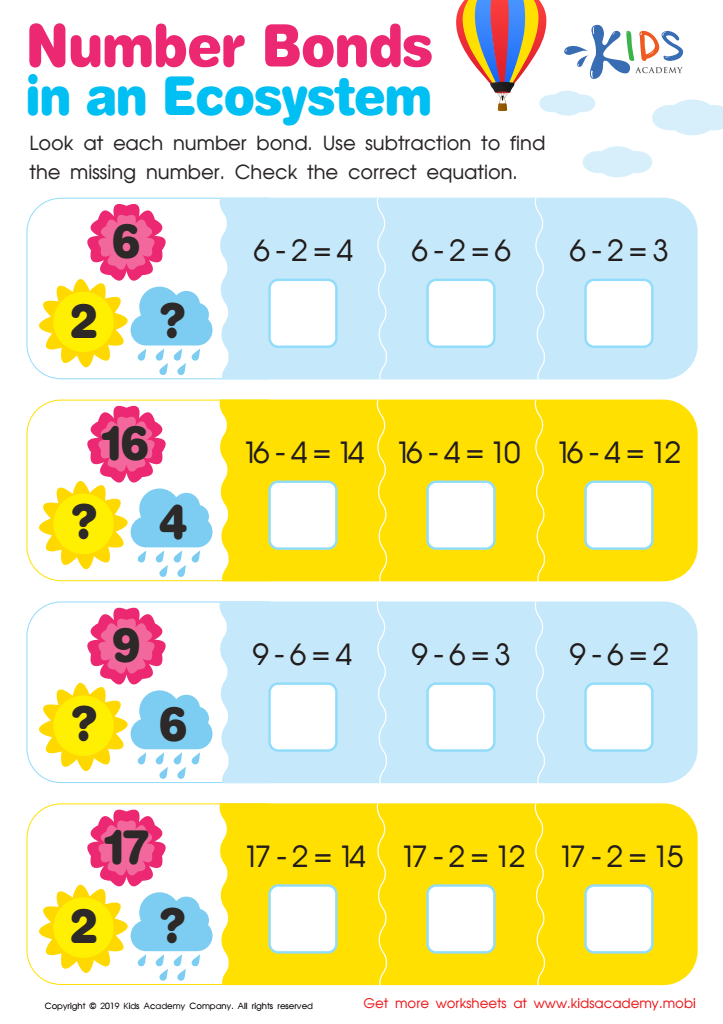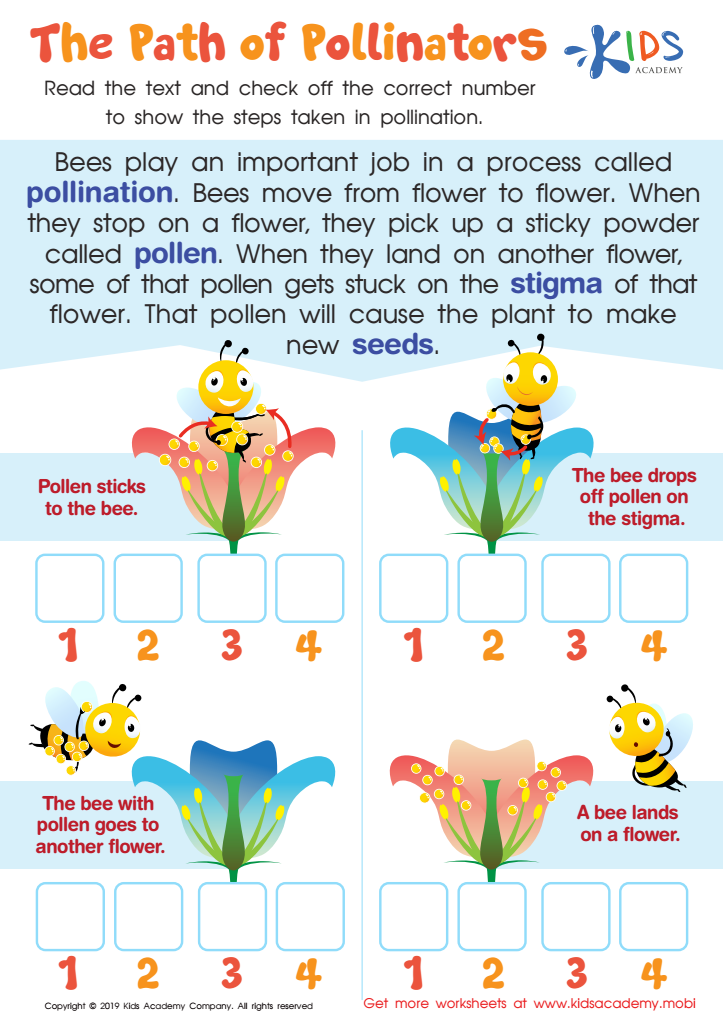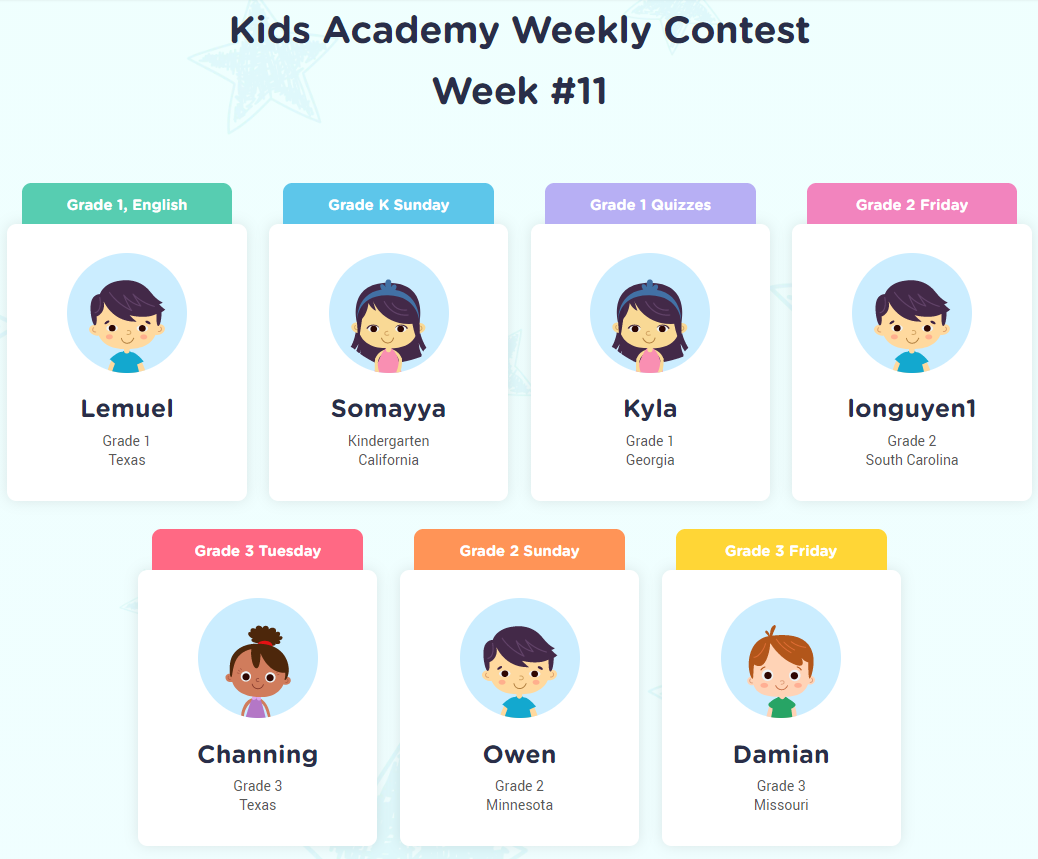Learning about ecosystems Worksheets for 7-Year-Olds
3 filtered results
-
From - To
Explore our "Learning about Ecosystems Worksheets for 7-Year-Olds" tailored to engage young minds in the wonders of the natural world. These specially designed worksheets introduce key concepts about different ecosystems, food chains, habitats, and the roles of living organisms. Through fun activities, colorful illustrations, and interactive tasks, children will develop a foundational understanding of ecology, observation, and critical thinking skills. Perfect for classroom use or at-home learning, these printable resources make ecology exciting and accessible. Foster a love for nature and science in your child with our engaging ecosystems worksheets.


Pollinator Positions Worksheet


Number Bonds in an Ecosystem Worksheet


The Path of Pollinators Worksheet
Learning about ecosystems is vital for 7-year-olds because it lays a strong foundation for understanding the intricate interdependence of the natural world. At this formative age, children are naturally curious and perceptive, making it the perfect time to introduce them to the basic concepts of ecosystems, such as plants, animals, weather patterns, and ecological balance.
Understanding ecosystems helps children appreciate and respect their environment. It instills a sense of responsibility and stewardship from an early age, which is essential in an era of increasing environmental challenges like climate change and biodiversity loss. When children grasp how different elements of nature are interconnected, they are more likely to adopt sustainable habits and advocate for environmental preservation as they grow older.
Furthermore, learning about ecosystems can enhance critical thinking and observational skills. It encourages kids to ask questions, make connections, and think scientifically. This sets a solid groundwork not just for science education but for cross-disciplinary learning, promoting curiosity and a lifelong love of learning.
By fostering an early appreciation for ecosystems, parents and teachers can help children develop a deeper understanding and respect for the world around them. This knowledge empowers them to make informed decisions that positively impact their communities and the planet. Therefore, learning about ecosystems is not merely an academic exercise, but a stepping stone towards nurturing environmentally conscious and scientifically literate individuals.
 Assign to My Students
Assign to My Students



















